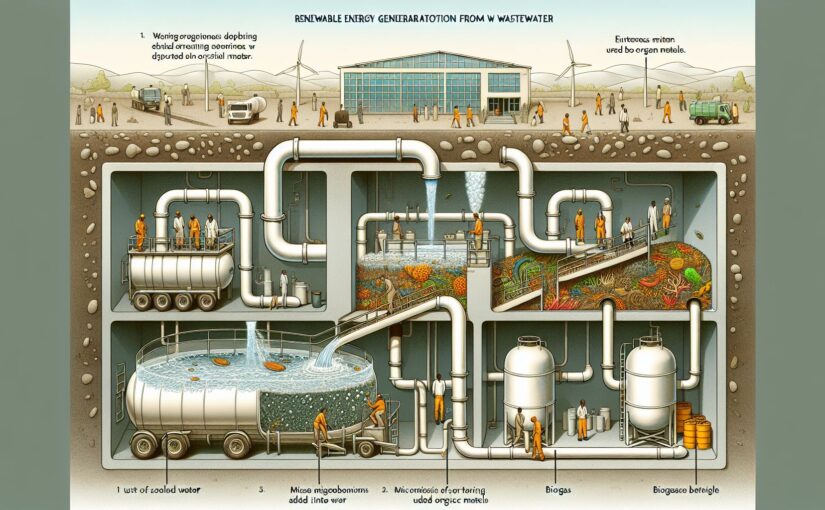Recommendations to combat climate change are constantly urging us to gravitate towards renewable energy. Thankfully, technological advancements have opened doors to capture energy from sources that are not usually considered. One such source is wastewater, which is emerging as a significant source of potential renewable energy. While wastewater management is recognized for its environmental significance, many are not aware of its latent energy potential. Leveraging this potential can generate renewable energy besides assisting with wastewater treatment.
How Does It Work?
The processing of wastewater generates biogas, a byproduct of organic material decomposition, often discarded as a waste product. However, with appropriate technology, this biogas can be harvested for heat and power generation. Wastewater houses various microorganisms. These microbes consume pollutants in the wastewater and generate electricity as a byproduct [^1^].
Furthermore, advancements in microbial fuel cell (MFC) technology has provided new avenues to harness the power of these microbes to produce electricity. MFCs generate electricity by using the bacteria present in wastewater to oxidize organic matter. This interaction, in effect, creates a biological battery, by converting energy stored in wastewater into electricity.
Benefits & Applications
In wastewater management, any process that can reduce financial expenditure while maintaining efficiency can be groundbreaking, and generating renewable energy from wastewater promises such. Besides offsetting treatment costs, this technology can also make treatment plants self-sufficient, reducing reliance on external power sources [^2^].
The energy produced can be used for numerous applications, including facilities maintenance, heating or powering systems in wastewater treatment plants, thereby reducing energy costs. Moreover, if scaled up, it could potentially serve small communities or power wastewater treatment plants off-grid, bringing sustainability to a new level.
Challenges & Future Prospects
Despite its obvious benefits, renewable energy from wastewater is not yet widespread, primarily because implementing the technology to extract energy from wastewater is costly and can prove to be technically complex.
Nevertheless, as scientists and engineers continue to design more efficient MFCs and affordable processes, the future of renewable energy from wastewater holds immense promise. Ongoing research in this field aims to scale up these systems to make this technology a commonplace in wastewater treatment plants around the world[^3^].
Clean energy, environmental preservation, and efficient wastewater management – all packaged into one system, is an opportunity we cannot afford to overlook. As renewable energy from wastewater continues to evolve, it is set to drive not just green energy transition, but also sustainable water management.
[^1^]: Logan BE, Rabaey K. Conversion of wastes into bioelectricity and chemicals by using microbial electrochemical technologies. Science. 2012;337(6095):686-690. [^2^]: McCarty PL, Bae J, Kim J. Domestic wastewater treatment as a net energy producer–can this be achieved?. Environmental Science & Technology. 2011;45(17):7100-7106. [^3^]: Heidrich ES, Edwards SR, Dolfing J, Cotterill SE, Curtis TP. Performance of a pilot scale microbial electrolysis cell fed on domestic wastewater at ambient temperatures for a 12 month period. Bioresource technology. 2014;173:87-95.
